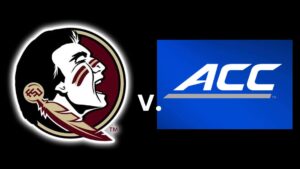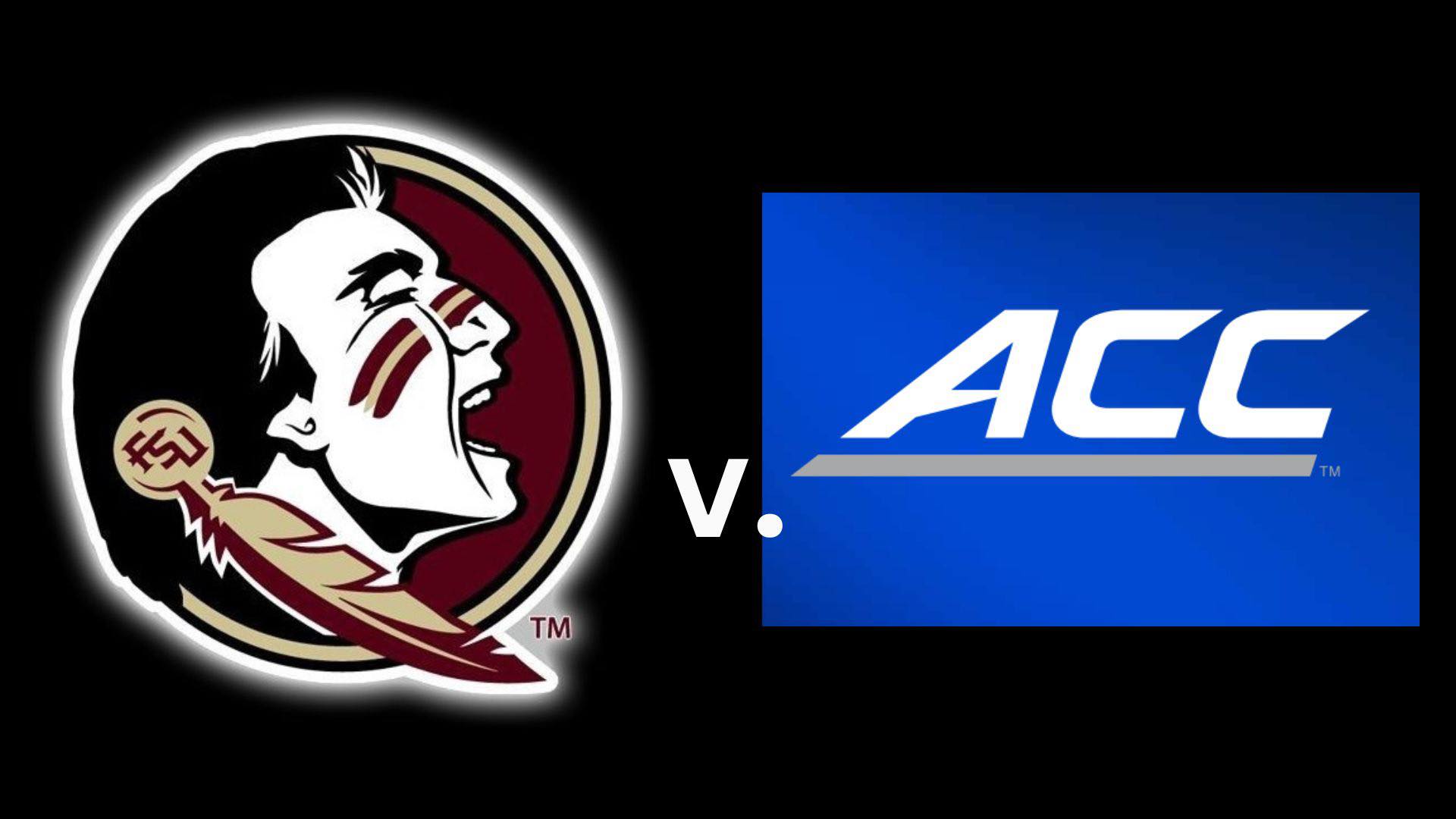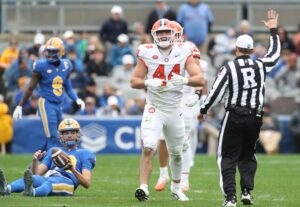In a prolonged ruling late Tuesday (6/18) afternoon, a Florida judge denied the Atlantic Coast Conference’s motion to dismiss the lawsuit Florida State filed to get out the ACC’s contract with the school.
Judge John C. Cooper presided over the third hearing for the one motion. The fight has been whether Florida courts have the jurisdiction to hear the case since the ACC is a North Carolina-based business entity. It is the exact inverse of the case in Mecklenburg County, the ACC v. Florida State. Judge Louis Bledsoe, presiding over that case, has already ruled against FSU’s motion to dismiss. The school is appealing to the North Carolina Supreme Court. It is expected to be heard sometime by Spring 2025.
As Tuesday’s proceeding began, he said he expected both sides to be done within a couple of hours. The hearing lasted nearly six hours, (including an hour for lunch).
Arguments Over Jurisdiction
The primary issues, brought about by FSU’s second amended complaint, were about personal jurisdiction and general jurisdiction in the eyes of the law. Lawyers for Florida State suggested that the ACC is a de facto resident in every state in which it does business, and thus subject to those state laws.
Counsel for the conference suggested that there is not enough business or revenue derived in the state of Florida to create general jurisdiction.
The two sides agreed that about 14.3% of all broadcasts in the ACC/ESPN/ACC Network arrangements come from the state of Florida, (with FSU and Miami). It was an unusual argument for the school to make considering the state of North Carolina has four schools, but the contention is not being made, yet, by any of those schools.
Mandates Placed Upon the Schools
Judge Cooper asked both sides if the conference media Grant of Rights (“GoR”) deal constitutes doing business in Florida. The ACC said no because the GoR was a bundled deal for all schools in the conference to participate in and was not specific to any of the Florida schools.
FSU lead counsel Peter Rush argued that the GoR is driven by the ESPN agreement with the ACC, and there are mandates for each school individually. He noted that Florida State spent nearly $10 million in constructing television production facilities on campus for the ACC Network and ESPN to broadcast games from there. Each school has similar mandates they have fulfilled, albeit at different financial levels.
Rush pointed out that when the networks broadcast from campus, whether it be from Doak Campbell Stadium, the baseball stadium, or the basketball arena, it is ESPN/ACC signage behind the announcers, not Florida State banners.
ACC Says the Contracts Are Bundled Agreements
That prompted Judge Cooper to say he had done some research on the mandates from the conference to the schools. He read off a list of rules as to where and when pre-game and post-game interviews are to be done to when and how many times cheerleaders may be tossed in the air during a basketball game. “The mandated rules could be construed as doing business,” Judge Cooper said from the bench.
The ACC lawyers contested that the value to the conference is in all schools being bundled. They said they make no revenue off the individual localities. The contracts with ESPN do not specify which schools must be participatory in the contract. And there is no money from individual game ticket sales, concessions, parking, etc., in each locality. The point made was that it is not FSU home games that are the value. It is all of the schools’ games in one package.
Rush countered that argument by saying it is about where the services are provided. In this case, each school has six home games, referring to the entire system as a “joint venture.” He added that each state should have jurisdiction over an issue involving its universities. He argued that it should not be Charlotte, NC, the home of the ACC.
The ESPN Contract
A still-to-be-determined part of the case in Florida, and in North Carolina, is the status of the ESPN contract. Lawyers for ESPN have argued that the contract must remain sealed to protect its industry secrets. In both cases, the ACC has submitted a copy of the contract with two-thirds of the pages left blank to protect its financial partner.
In the lawsuit in Pickens County, South Carolina, (Clemson v. ACC), the judge has already ordered that the contract be turned over in its entirety for discovery purposes. But the order also says that there may be no leaks of the content.
The proceedings on Tuesday took many detours. Judge Cooper asked many hypothetical cases about who gets the TV revenue if an ACC team plays an SEC team in the Gator Bowl or any other bowl in Florida. He went through many theoretical matchups and waxed poetic about the loss of the Tangerine Bowl. Both sides explained that the conferences got the revenue for postseason appearances by their schools. That money is then given to each member university.
Delayed Ruling
After the lunch break, he brought up his order for mediation. That turned into a 20-minute soliloquy by the judge on the virtues of mediation. He also provided a recap of some of the cases he went through as a trial attorney that ended with mediation.
As he issued his ruling Tuesday, he made it clear it would just be a verbal ruling for now. The written version is to come in a few weeks. “You’re looking at my resource base,” he said, pointing to himself. He has often reminded all parties that he does not have a law clerk. He says he does all of his own research and writing.
In the verbal ruling, he said doing business in a state does not mean you have to have offices there. It means the execution of the contract with financial matters is happening there. He quoted several cases, (Belz v. State among them; a case decided by the Florida Second District Court of Appeals in 2017). Cooper said if the conference is carrying out business in the state of Florida, then the state of Florida, “Has a valid interest in adjudicating,” the issues at hand.
The ACC had filed with the Florida Court of Appeals before Tuesday’s ruling. The appellate filing is based on Judge Cooper’s previous rulings and procedures before the final hearing on the motion. That appeal does not yet have a court date.







